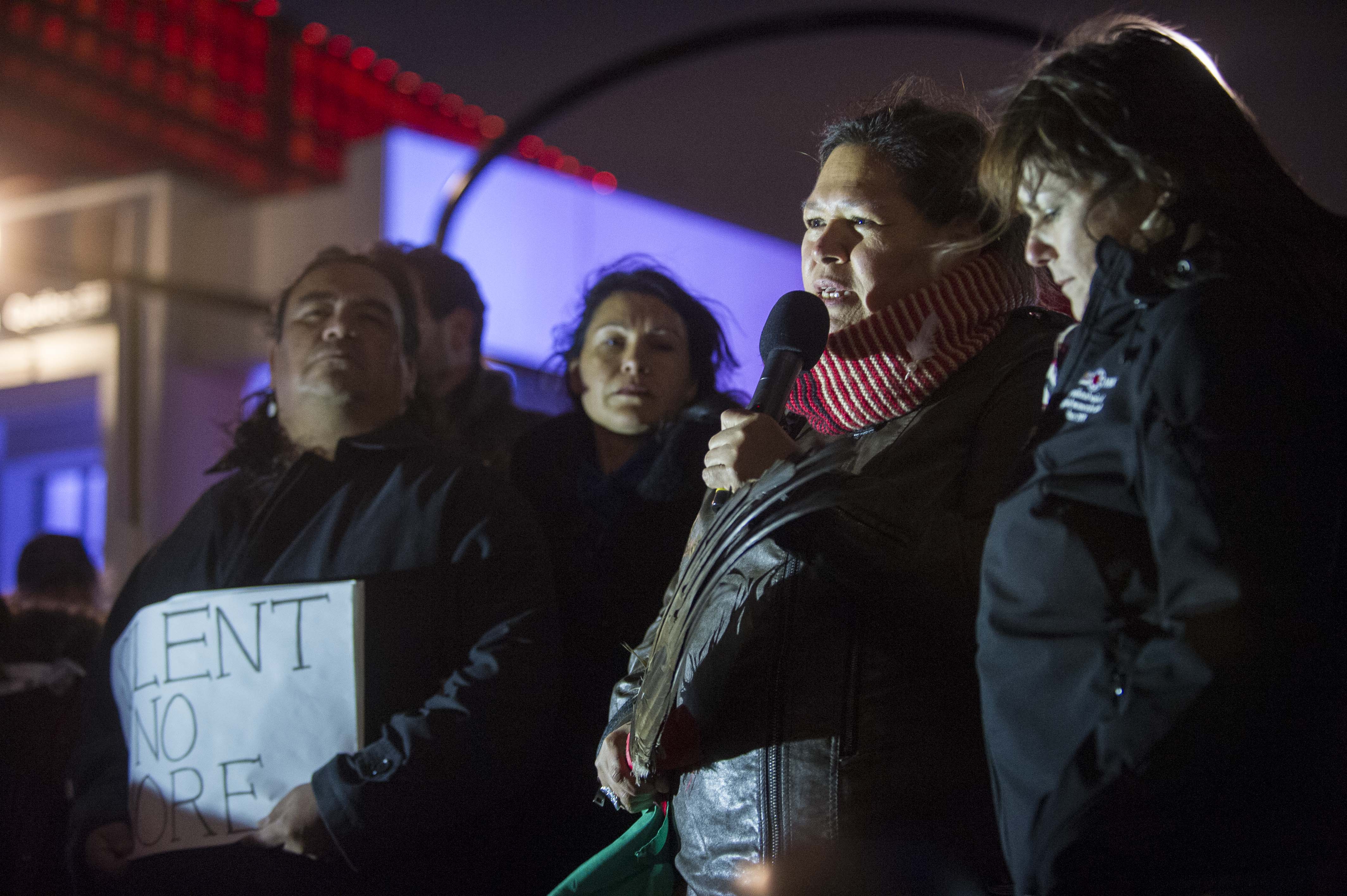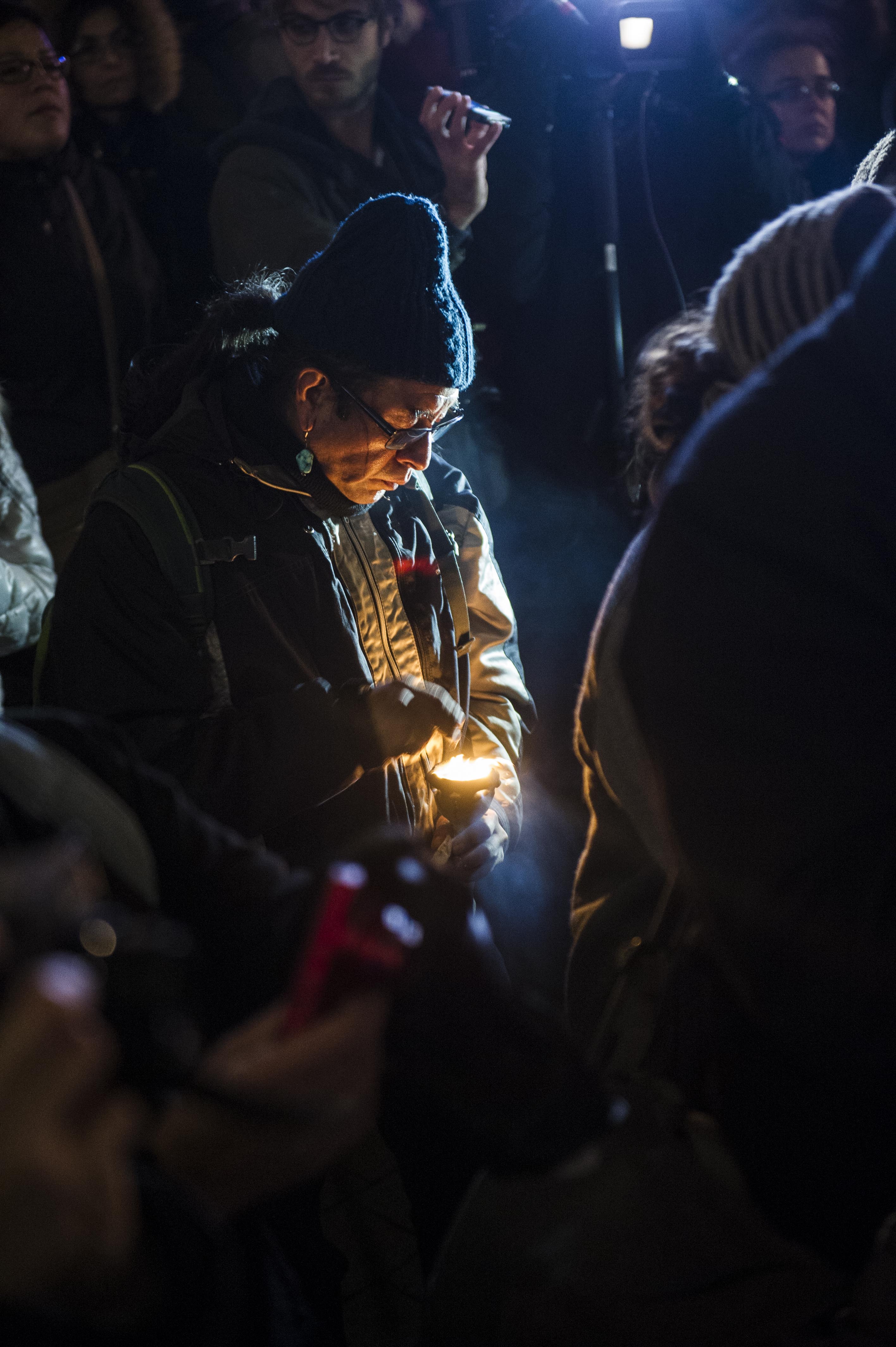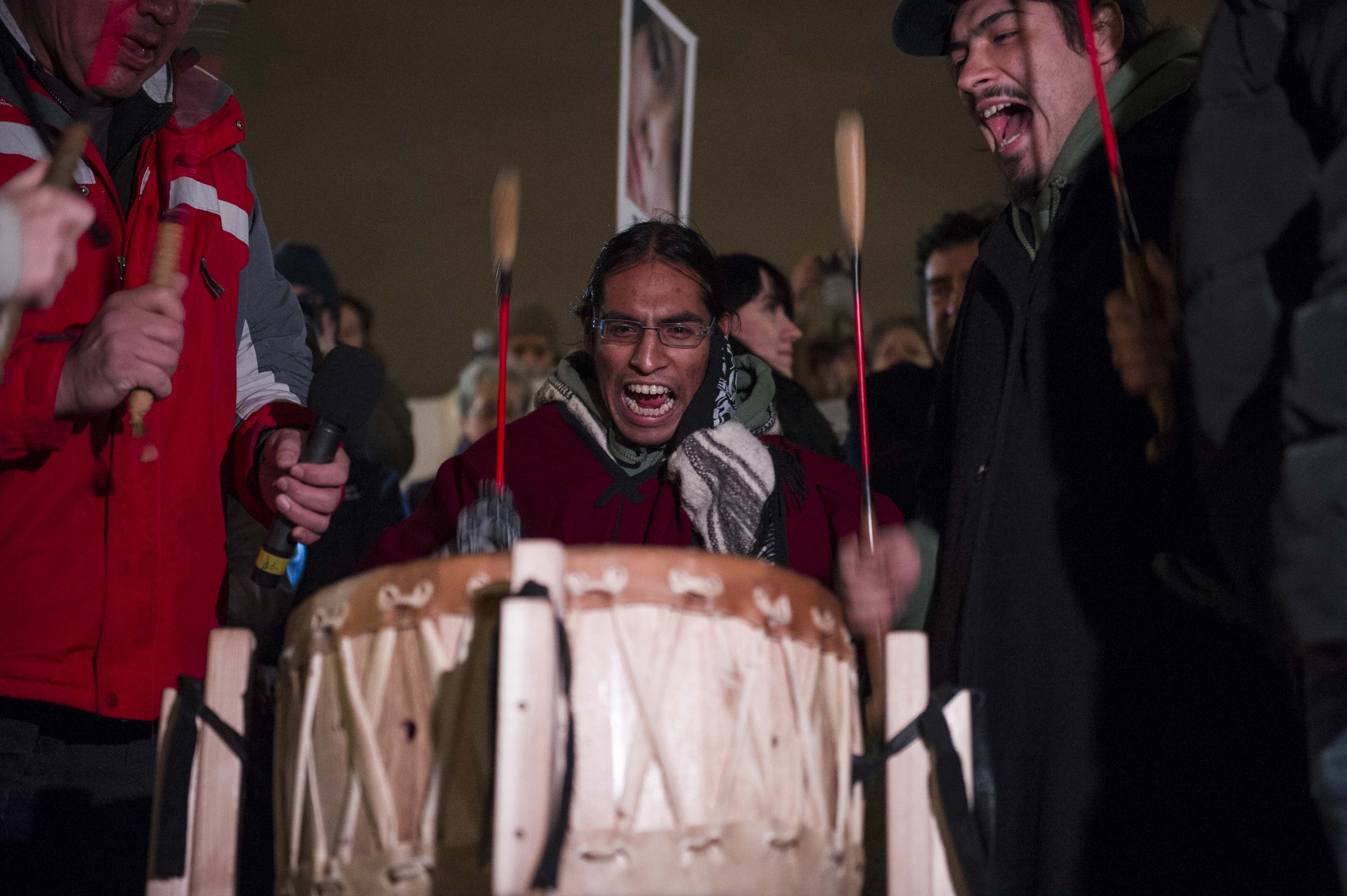Hundreds gathered to speak out against the treatment of native women
Hundreds gathered outside Place des Arts on Thursday to show their support for aboriginal women.

The smell of candle smoke filled the space of the vigil as attendees lit candles and lanterns to pay their respects. The vigil took place on the corner of Sainte-Catherine and Jeanne-Mance and was organized by Idle No More Québec, Amnesty International, the Regroupement des Centres d’Amitié Autochtones du Québec, Native Montreal, Quebec Native Women and Montreal Aboriginal Network.
In response to the recent allegations made against Surêté du Québec officers in Val d’Or, the vigil was a cry for justice and for immediate change as well as a celebration of the lives of all the missing and murdered aboriginal women in Canada.

Allegations of sexual and physical abuse towards aboriginal women in Val d’Or were brought to light two weeks ago by an investigative report by Radio Canada’s T.V. show Enquête. Since the show aired, more aboriginal women have come forward with their experiences.
The investigation has been taken out of the hands of the SQ and into those of Montreal police. However, the allegations are driving citizens, activists and organizations to put pressure on the government on the provincial and federal level to launch a national independent investigation into the affair.
Ghislain Picard, Chief of the Assembly of First Nations of Quebec and Labrador, believes it is up to citizens, officials and the government to take responsibility and to rectify to issue of missing and murdered aboriginal women. “Let’s stand together, indigenous peoples and non-indigenous peoples alike, to make sure that the dust doesn’t settle too quickly,” said Picard to the crowd of supporters.
Indigenous human rights activist Ellen Gabriel said enough is enough. “This is happening right across Canada, right across the United States, right across the world. We should not accept any more inquiries that are led by government,” she said to the crowd. “The inquiry should be [conducted by] an independent body.”
“This is the kind of thing we saw in 1990, where the Sûreté du Québec were above the law,” said Gabriel, referring to the Oka Crisis of 1990. The Oka Crisis occurred after a land dispute between the town of Oka and the Mohawk community of Kanesatake, and became heavily mediated as protests began. The Mohawk people created a barricade to block the area they were protecting from becoming a golf course. The Sûreté du Québec responded to the barricade aggressively, using tear gas canisters and concussion grenades.

Vigil attendees bundled together, holding up posters with faces and names of missing and murdered aboriginal girls and women, and re-lit their candles repeatedly as persistent and powerful winds blew them out. Groups such as the Buffalo Hat Singers chanted between speakers, in honour of lost women.
“We are all here for one very specific reason: we want a public national and widened inquiry about the violence against aboriginal women,” said Philippe Meilleur, executive director of Native Montreal, to the attendees. “We are seeking truth, demanding credible and public processes that will make the truth come to light, and hopefully justice will follow.”
For Mélissa Mollen-Dupuis, co-founder of Idle No More Québec, the situation in Val d’Or has affected her on a personal level. “It’s not a political case for me, it’s not a work case, it’s a real-life situation for me and for my baby,” the Innu activist told The Concordian. “I’m scared for her every day.”



